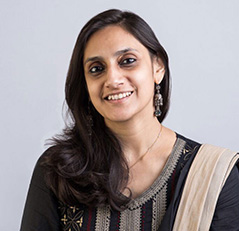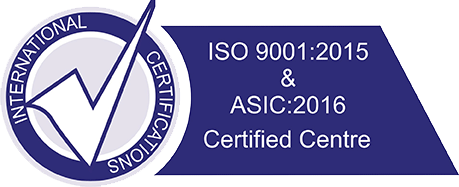
Dr. Dipanjana Datta, Consultant Molecular Geneticist
Senior Research Scientist; Genetic Counselor, Participant in Indian genome Variation Database
Field/Specialization: Population Genetics, Complex genetic disease and Cancer, Host Pathogen interaction, Infertility genetics
Dr. Dipanjana Datta is a molecular geneticist and has 10 years of experience in the field of human genetics. Dr. Datta completed her PhD from Indian Institute of Chemical Biology. Further, Dr. Data was a post-doctoral fellow from Virginia Common Wealth University (VCU).
Research Experience
She has published in numerous international journals of repute like PNAS, Journal of Neurology, Plos One, International Journal of Gastroenterology, etc. Her research encompasses:
- She worked in several projects including association of IL1B with Helicobacter pylori induced duodenal ulcer in eastern Indian population and elucidation of the signaling pathways of IL1B that regulate gastric acid secretion.
- Identification and elucidation of mu -opioid receptors that respond to morphine in the gut their splicing isoforms and the role of these splice variants in developing morphine tolerance in gut.
- The effect of HIV tat on myenteric neurons.
- Biomarker discovery for predicting metastasis in oral cancer in Indian population.
- Indian genome variation database.
- Idiopathic spontaneous abortions.
- Y chromosome micro deletions in Indian population.
- Cystic fibrosis, prenatal genetics, risk prediction etc.
Memberships
She is the member of various esteemed genetic associations like
- American Society for human genetics (ASHG)
- Indian Society for human genetics (ISHG)
- Calcutta consortium of human genetics (CCHuGe)
- Society for Biological Chemist (SBC) and the Indian Immunological Society (IIS). .
She is also is a member with Indian genome variation Consortium.
She is actively involved in meeting couples with couples affected with genetic disorders or who are at the risk of having a baby with an inherited disorder. She counsels individuals and their families about diseases or problems they harbor but also the consequences of testing and the potential for therapeutic intervention, also enumerates the risks to other family members both in present and future generations.
In a nutshell this is what she discusses and helps people and health care professionals take informed decisions.
- Review family and medical history.
- Figure out if the patient or their family members are at risk for disease.
- Explain how genetic conditions are passed down through families.
- Find and give information about genetic conditions.
- Provide information about testing options and help patients decide whether they want testing.
- Offer guidance to help the patient make informed choices or life plans.
- Help patients find referrals to medical specialists, support networks, and other resources.
Which part of your work are you passionate about?
Diseases can be prevented and/ managed. There is a lot of such information unavailable to many people who are fighting such an issue on their own without proper networks to reach out to. To provide an information to them, connect them to people who can help them and to let them realize that they are not alone brings a lot of strength in these people who are already fighting this battle. It’s like you provide these people with that hope where they on most occasions find a chance to live better and happier.
What do you find the most full filling aspect of work?
To be a part of their fight, to be able to address their concerns and provide them with a ray of hope and sometimes even put a smile on their face when they thought all doors were closed through information and assessment and network is something that makes me feel.
What is the most important or significant aspect of the role/ part that you are playing in patient’s treatment process?
In addition to explaining individuals and their families information about diseases or problems they harbor I also inform them about the consequences of testing and the potential for therapeutic intervention, also enumerate the risks to other family members both in present and future generations. My counseling helps patients to make an informed decisions.
Critical areas for patient:
Individuals who have any of these issues should seek for counseling.- Any Familial Disorder
- Cancer genetics
- Infertility, Artificial Reproduction Techniques and pre-implantation genetics
- Neurogenetics and psychiatric genetics
- Common adult disorders (e.g., cardiac diseases, diabetes, BP, asthma, etc)
- Genetics in the primary care setting – birth defects and mental retardation
- With regards to pregnancy and infertility couples who fall under any of these categories should ask for counseling:
- Has a pregnancy at age 35 years or older
- Has a history of infertility or multiple pregnancy losses
- Has a family history of an inherited condition such as cancer, blood disorders, neurogenic conditions etc.
- Has a child with a chromosome abnormality
- Has a child with short stature, growth delay or overgrowth syndrome
Message to patients:
There is a lot to be afraid about and internet can provide you with lot of information which might not be relevant for you. Do be alert and see an expert. Disease can be managed, or prevented if you are aware enough.


